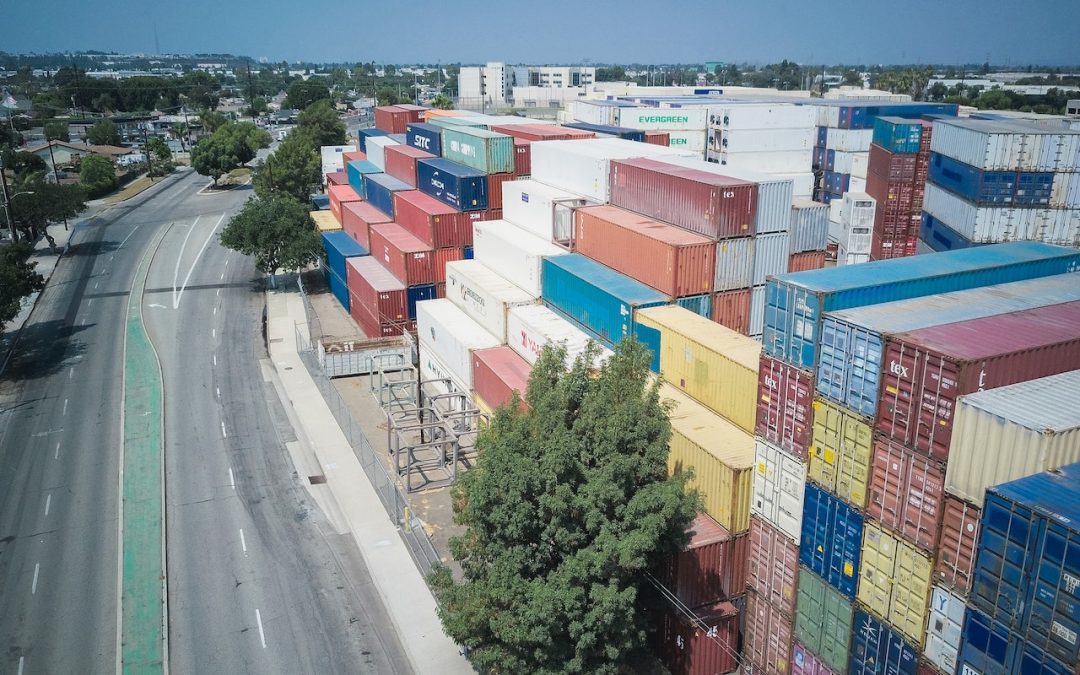Wondering what PVA is in the world of shipping? Hint: it’s not school glue.
(That’s what came to mind, right?)
PVA stands for Postponed VAT Accounting. It’s an optional scheme there for the using, and it can be really useful for businesses that import and export goods.
Let’s take a look at what PVA is and how to use it.
PVA: What Is It?
Before Brexit, when we were still part of the EU, we didn’t have to pay customs duties on transactions with other EU countries. Following Brexit, we definitely do, and so a new system was introduced to make importing goods and the associated VAT payments easier.
Postponed VAT Accounting, or PVA, is a scheme designed to simplify VAT payments for businesses. The use of PVA means businesses can import goods without paying the import VAT upfront. Instead, a VAT-registered business can import goods, clear them through customs and then account for the import VAT through its VAT return later on.
PVA is optional, meaning you can use it on some imports but not on others if you wish, however, this can cause confusion later down the line when the time comes to complete your VAT return.
Who Can Use PVA?
You must be a VAT-registered business to account for import VAT under PVA and can account for goods that are imported for use in the business, and that relate to taxable supplies made by the business.
Businesses using PVA will need to provide their unique EORI number, VAT number and registration date, and will need to declare they are using PVA on the customs declaration.
To make sure they are accounting for import VAT correctly, businesses need to account for import VAT in the VAT return that covers the import date.
What Are The Benefits Of PVA?
Using PVA offers multiple benefits, and businesses should choose to use it. Here’s why.
Better Cash Flow
A well-managed cash flow can transform a business. Businesses using PVA never have to pay import tax upfront but can still recover the cost later, avoiding negative cash flows and welcoming a cash flow boost.
Avoids Freight Forwarder Charges
When you use a freight forwarder to import goods for you, they usually front your VAT payment and recharge it to you. Using PVA means businesses can avoid paying their freight forwarder admin charges for dealing with the import VAT on their behalf because it’s already taken care of.
Cheaper Than A Duty Deferment Account
Duty Deferment Accounts, or DDAs, allow businesses to delay customs duties and import tax payments so that they can pay monthly rather than by consignment.
If you’re after a DDA for yourself, you’ll need to pay to obtain the financial guarantees necessary to qualify. This means that using PVA is cheaper for businesses wanting to streamline their cash flow because there aren’t any fees to pay, either to apply for a DDA or to use a customs agent.
Using PVA rather than a DDA also avoids businesses having to reclaim their delayed VAT payments separately on a VAT return. This system means it can take several months to receive the reclaimed VAT.
Are There Any Disadvantages to Using PVA?
The PVA system is complex, so the only major disadvantage we can see is that you’ll need to make sure you use a freight forwarder that is familiar with it. Having said that, it’s a very popular scheme – and it’s not hard to see why – so plenty of forwarders should have a good grasp on the details.
The only other point worth noting is that, unlike duty deferment accounts, PVA doesn’t touch customs duties, so these payments will still need to be made separately. If you have access to the Customs Declaration Service, this means using cash accounting to pay for the duties when you make a declaration. Depending on the scale of your business, you may still want to operate a deferment account to streamline payments.
Does It Just Apply To Imports From The EU?
Not at all. Businesses can use PVA or imports from anywhere in the world.
What About Northern Ireland?
Northern Ireland continues to be part of the EU VAT area, as well as being considered part of the UK, meaning they have a unique VAT and customs arrangement.
Businesses in NI don’t need to pay import VAT on goods imported from the EU. Therefore, PVA is neither used nor needed. The Reverse Charge mechanism, which is the scheme the UK used pre-Brexit, is still used in NI instead. Using this scheme in B2B transactions also neutralises the VAT effect, but in this arrangement, the seller is no longer held responsible for the VAT at all. Instead, the beneficiary is responsible for paying tax to the revenue office.
Goods moving between NI and the UK fall under standard UK VAT procedure, so again, no PVA is necessary. But for NI businesses importing from countries outside of the EU, PVA can be utilized and is even mandatory for B2B imports with a value below £135.
Postponed VAT Accounting Works Wonders For Cash Flow
It’s easy to see how using a PVA can significantly help your cash flow, but it also speeds up the import process.
Not sure if you should go for PVA or DDA? Get in touch with Millennium today, and we’ll help you to find a solution that meets your business needs.

